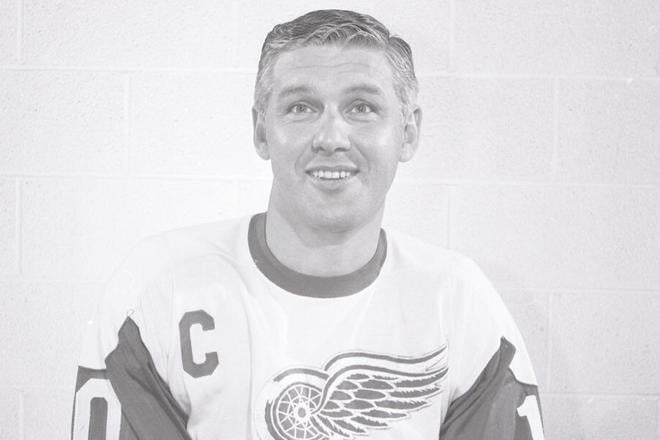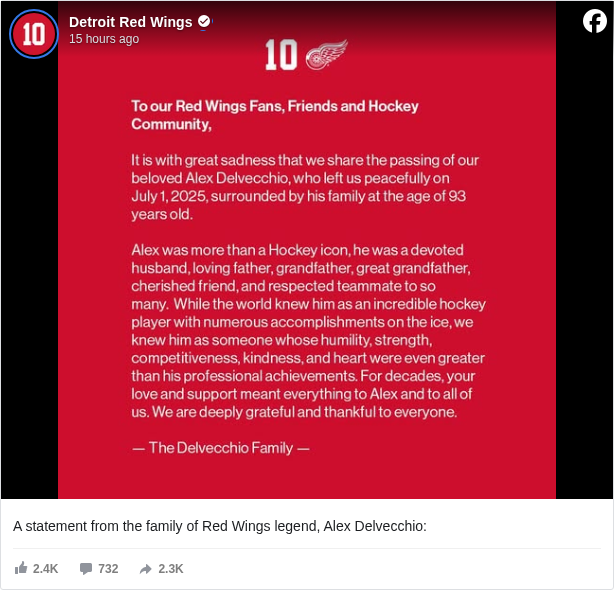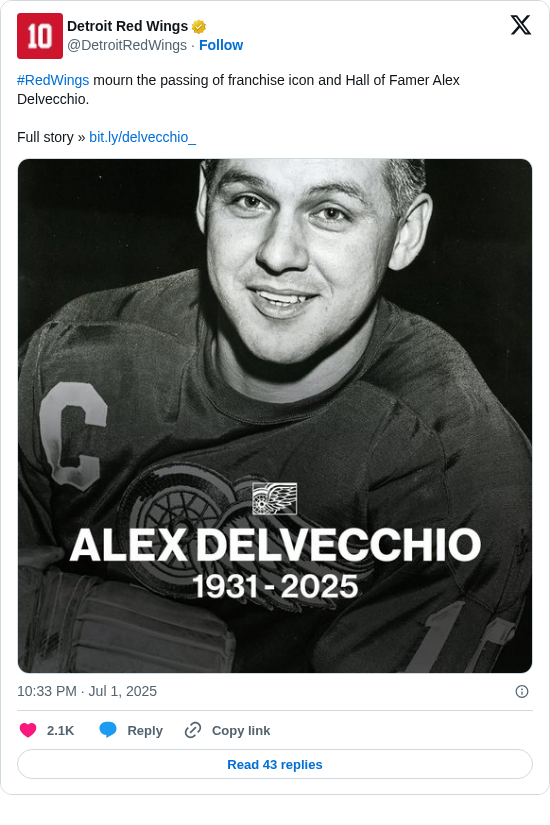Alex Delvecchio, one of the Detroit Red Wings’ most enduring legends and a Hockey Hall of Famer with roots stretching from Italy to Slovakia, has died at the age of 93.
The club confirmed his passing on Tuesday but did not disclose a cause. According to his family, Delvecchio passed peacefully, surrounded by loved ones.
Born in Fort William, Ontario, to an Italian father and a Slovak mother, Delvecchio spent all 24 of his NHL seasons wearing the iconic winged wheel of Detroit – a career spanning from 1951 to 1973. Only two players – Gordie Howe and Nicklas Lidström – have played more games for the franchise. His No. 10 jersey has long hung in the rafters, and his bronze likeness stands in tribute at the Red Wings’ home arena.
Delvecchio tallied 1,325 points in 1,549 regular-season games and won the Stanley Cup three times (1952, 1954, 1955), forming a devastating line alongside legends like Howe and Ted Lindsay, according to Sportnet. Revered as much for his character as his skill, Delvecchio captured the Lady Byng Trophy for sportsmanship and performance on three occasions.
But it was not just hockey heritage that ran deep. Though often identified with his Italian surname, Delvecchio proudly acknowledged his Slovak roots in later interviews. His mother, Annie Tapak, was born in North America to parents from Orava, northern Slovakia. She died when Delvecchio was nine. “We spoke only English at home,” Delvecchio recalled, “a little Italian with my dad’s parents. At my Slovak grandparents’, I could say just ‘hello’ and ‘goodbye’ in Slovak.”
Still, his upbringing was rich in Slovak tradition – especially when it came to food. “We had cabbage rolls and pirohy all the time. My grandfather had a big barrel of sauerkraut on the veranda. We’d scoop it out and eat it with sausage and dumplings.”
Delvecchio broke into the NHL in 1951-52, scoring 15 goals as a rookie and celebrating his first Stanley Cup by season’s end. By 1962, he was wearing the captain’s “C”, a position he held with quiet authority for over a decade. The 1968-69 season saw him, Howe and Frank Mahovlich form one of the most productive lines in NHL history, breaking a decades-old scoring record with 118 combined goals.
When his playing days ended, Delvecchio’s story in Detroit continued. Called in for what he thought was a trade meeting in 1973, he was instead offered the job of head coach. “It was the happiest day of my life,” he later said. He would serve as both coach and general manager during the following years.
Inducted into the Hockey Hall of Fame in 1977 and named one of the NHL’s 100 greatest players during the league’s centennial celebrations, Delvecchio remained a beloved figure in the Motor City.


 Alex Delvecchio (source: Hockey Hall of Fame/X)
Alex Delvecchio (source: Hockey Hall of Fame/X)


